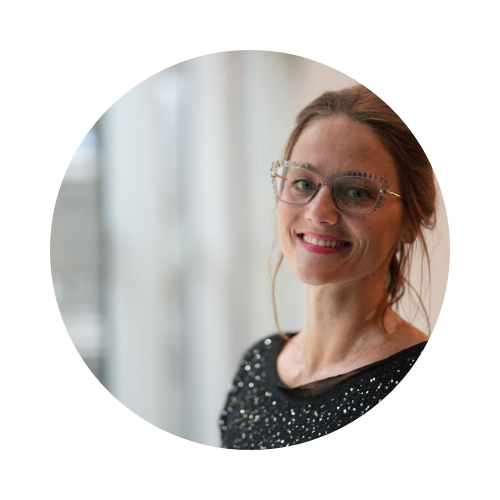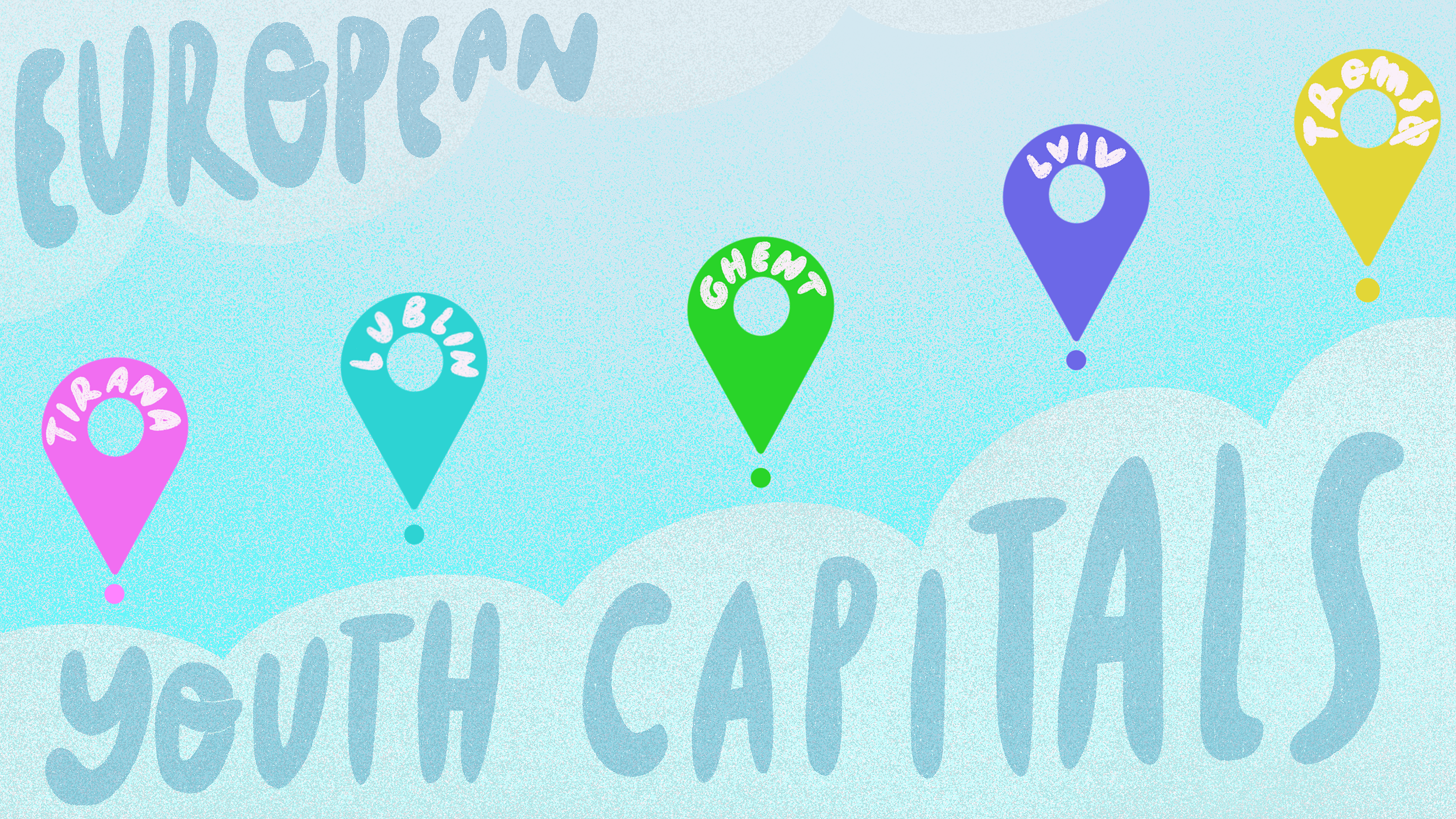
Illustration by Daniela Nunes
A closer look at the European Youth Capital initiative
by Lorena Baric
Imagine an initiative that empowers young people, amplifies their voices, and transforms cities into dynamic hubs of youthful energy and creativity. Giving a platform to youth to influence the world around us, express their concerns and aspirations, and place them at the forefront of shaping their communities is crucial. One such platform that has successfully accomplished this is the European Youth Capital initiative.
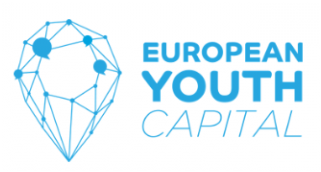
In this article, we will delve into the EYC initiative, its significance for empowering and promoting the voices of young people, and share examples of past youth capitals, Tirana, Albania, and Lublin, Poland, respectively. With this article, we aim to shine a spotlight on the potential of young people in shaping the future of Europe.
 The European Youth Capital – objectives and importance
The European Youth Capital – objectives and importance
The EYC serves as a platform for change, highlighting the importance of youth engagement and providing opportunities for young people to influence positive change in their communities. The EYC endeavours to present new youth initiatives, encourage active and meaningful youth participation in decision-shaping processes, and give visibility to the issues affecting young people.
Each year, one European city is designated as the European Youth Capital, allowing it to showcase its youth culture, develop programmes and activities that respond to the needs and aspirations of young people, provide them with the space to voice their concerns and ideas for bettering their communities and foster innovation, inclusion, sustainability, and participation.
One of the key benefits of being the EYC is that it can help to raise the profile of youth issues and youth policy in the host city. This can lead to increased investment in youth-related initiatives and programmes, as well as greater recognition of the important role that young people play in society.
In terms of youth policy and youth work, being an EYC provides a platform for the development of innovative approaches to youth policy and youth work, as well as for the sharing of best practices and experiences. It also helps foster closer collaboration between different actors in the youth field, such as youth organisations, local authorities, and other stakeholders.
 The European Youth Capital – insights from the organiser, the European Youth Forum
The European Youth Capital – insights from the organiser, the European Youth Forum
The European Youth Forum awards the EYC title, provides support to applicant cities and EYC title-holders, and oversees the entire process. In order to gain further insights into the EYC, we had an opportunity to speak with the European Youth Forum representatives.
How does the European Youth Capital initiative contribute to the empowerment and engagement of young people in cities?
Starting with the application to become a European Youth Capital, cities closely collaborate with young people in setting up the plans for the title. In this way, the initiative is already having an impact on young people’s engagement within their local community. By giving them space, cities allow young people to bring topics of interest to them.
How can the European Youth Capital initiative and the European Year of Youth 2022, contribute to shaping youth-related policies and practices at both local and European levels?
The European Youth Capital initiative has inspired many local authorities to change their mindset when it comes to the work done on young people. At the local level, it is easier to be innovative and set up new ways of working with the local community. Just like the European Year of Youth, our title is an opportunity for authorities and young people to meet, learn how to work together, and get creative in answering their own aspirations and needs. These examples prove that it is possible to involve young people, give them the space to take part in the decision-making process, and build a stronger community from the bottom up.
What role does the European Youth Forum play in supporting and guiding cities selected as the European Youth Capital? How do they ensure the sustainability and long-term impact of the initiative?
From the moment a city is selected as European Youth Capital, the European Youth Forum provides support in the preparation of the programme, in particular for what concerns its European dimension. We also support youth organisations to boost their skills and make new connections with other organisations around Europe. Since the legacy aspect is one of the most important outcomes of the European Youth Capital title, our collaboration with the cities doesn’t stop at the end of the year, but we continue to involve them in our activities, making use of their expertise, and sharing the positive effects of their work.
What criteria are taken into consideration when selecting a city as the European Youth Capital?
When applying to become a European Youth Capital, the municipality and a local youth organisation must come together and agree on a list of priorities they would like to address during their year of holding the title. They are expected to propose a series of activities, events, and seminars that will involve diverse groups of young people in their city and improve their lives. Each proposal is evaluated by a jury, based on the involvement of local young people in the development of the programme, its inclusivity, the allocation of sufficient budgets, coherence, and the long-term impact that the title is aiming to have.
Looking ahead, what are the future prospects and goals of the European Youth Capital initiative, and how will it continue to promote youth empowerment and engagement in Europe?
Having impacted the lives of so many young people around Europe, the European Youth Capital has been a success and allowed municipalities to move things forward in a way that was not possible without the title. Next, Ghent carries the title in 2024, in parallel to the Belgian Presidency of the EU, and after it will come to Lviv, in Ukraine in 2025. So, we are excited to see a renewed focus on those cities leading Europe during their title year, even if from very different perspectives. Our societies are more and more aware that young people can contribute to change in all sectors, from environmental issues to peace and security. The title has always had this cross-sectoral approach and has shown that if young people are involved, the whole community can benefit. This is a success that we want to keep sharing, and we cannot wait to be there together with our colleagues in Belgium, Ukraine, and the rest of Europe.
 The example of Tirana, Albania: European Youth Capital during the European Year of Youth 2022
The example of Tirana, Albania: European Youth Capital during the European Year of Youth 2022
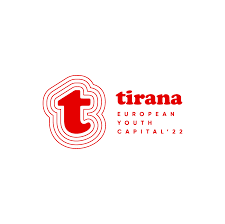
Being the European Youth Capital during the European Year of Youth provided Tirana with heightened visibility and recognition for the city's efforts in empowering and engaging its young people. This also drew more attention from national and European stakeholders, media, and youth organisations, showcasing the city's commitment to youth development. The European Year of Youth fostered collaboration and exchange among cities, organisations, and youth networks across Europe. Together with the EYC initiative, this provided a more powerful momentum for young people and various youth-related stakeholders to share knowledge, and best practices, and exchange innovative ideas and solutions to address common challenges faced by young people across Europe.
In our conversation with the European Youth Forum, they shared valuable insights into the benefits, successes, and impact that Tirana experienced as the EYC during the European Year of Youth: “Tirana having the European Youth Capital title in 2022 was a unique opportunity for the city, the country, but also the Western Balkans, to make considerable steps forward in youth policies and youth engagement. The team leading the year from the National Youth Congress did an incredible job in organising the initiative. They managed to outreach local and national residents and formed contacts with youth organisations from across Europe, and put a focus on young people whose needs are often overlooked. It also brought international attention to the city and everything it has to offer.”
Could you share some highlights, specific initiatives, or projects undertaken by Tirana as the European Youth Capital? How did they align with the goals of the European Year of Youth?
The programme of Tirana during the year was clustered into 8 thematic pillars, with more than 1.000 activities in total, from small workshops to long-running projects. All these activities have been led by young people themselves.
I would like to mention initiatives such as “Young Developers and Entrepreneurs to Advance Start-ups” (YDEAS), a project aiming to upskill young people aged 18-25 from the Western Balkans region, to improve their innovative entrepreneurial capacities, or healthy activities organised within the South Outdoor Festival, engaging young people in healthy and sustainable activities, as one of the main pillars of work of Tirana European Youth Capital.
Furthermore, international events attracted young people and practitioners from all over Europe, such as the Opening Ceremony, the Award Ceremony for the European Youth Capital 2025 and the Youth Partnership's Symposium ‘Navigating Transitions: adapting policies to young people’s changing realities’, in which more than 100 young people and their organisations, policy makers, youth work practitioners and researchers reflected on youth transition patterns and experiences.
Apart from showing what Tirana was doing during its European Youth Capital year, young people from the city had the chance to welcome and exchange with their peers from various countries.
A particular emphasis was placed on the cooperation within the Western Balkans: Mostly with the support of the Regional Youth Cooperation Council (RYCO) and the Regional Cooperation Council (RCC), Tirana highlighted the common issues faced by young people in the region. Tirana also took an important part in the Youth Trail, a sharing and networking event co-organised by the Organisation for Security and Co-operation in Europe (OSCE).
In what ways did Tirana involve young people in decision-making processes and the planning of youth-related activities throughout its tenure as the European Youth Capital?
The National Youth Congress of Albania is the youth organisation that took ownership of the bid to become European Youth Capital, and, once the title was awarded, they were in charge of setting up the project, with the support of the Municipality of Tirana. This meant that the platform representing Albanian young people was directly involved in the planning for the title. However, involving youth organisations is not enough; the European Youth Capital project aims at involving young people that are not usually active in civil society. Through open calls, the EYC team managed to reach out to non-organised youth to let them have their say in organising activities of their interest.
What challenges did Tirana face during its time as the European Youth Capital, and how were they addressed?
When a city gets the European Youth Capital title, the job is not done yet. After the plan is presented, the community faces the practical challenge of involving young people as wide as possible, getting funds to secure the execution of the programme, and making efforts to find ways to create an organisation that is economically sustainable in the long term.
After Tirana was awarded the title in November 2019, the city faced enormous external challenges - first, the earthquake that hit the country just a few days after the winner’s announcement, and then the Covid-19 pandemic. Despite these constraints, the National Youth Congress and the Municipality managed to guarantee funding for all the activities of the year, through the municipal budget and through the support of multiple actors, from foundations and private companies to international institutions.
What impact did the European Youth Capital initiative have on Tirana's young population and the overall perception of youth-related issues in the city? What has been Tirana's impact or legacy after the end of 2022?
The year as the European Youth Capital brought youth work in Tirana to a whole new level. It brought young people in the city closer to their European counterparts and formed bonds and opportunities for exchange that will continue well beyond the year of Tirana as the Youth Capital. In November 2022, over 100 of the European Youth Forum’s member organisations visited the city and learned about the work of the National Youth Congress. Our Board also met with Tirana’s mayor and together we discussed how we involved young people from marginalised backgrounds in our activities. This attention to youth issues has created much knowledge that stayed with the municipality and local youth organisations far beyond the year. We already have a network of former youth capitals who continue to invest in young people and in sharing best practices, and we hope to see Tirana joining as a proud member!
What lessons and best practices can other cities learn from Tirana's experience as the European Youth Capital?
There are many lessons that could be taken from Tirana's case, as any other cities having held the European Youth Capital title. Specifically, from Tirana, their success means that no matter where the city is located, or how rich the county is, change is possible if the city administration is open to renewing the way it interacts with young people. It is also an encouragement to cities from countries not yet part of the EU, to make use of such an opportunity to better include their citizens within the integration process and regional cooperation structures.
 Lublin, Poland: European Youth Capital 2023
Lublin, Poland: European Youth Capital 2023
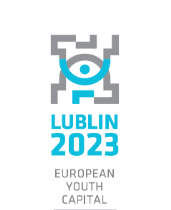
As the European Youth Capital, Lublin hosted a variety of events and activities throughout the year, including conferences, workshops, festivals, and cultural events, all aimed at promoting youth participation, active citizenship, and social inclusion. These events provided opportunities for young people from all over Europe to come together, share their experiences, and learn from each other.
“The EYC Lublin team’s goal was to establish Lublin as the most youth-friendly city in Poland and a pioneer in the implementation of youth initiatives. They strive to make Lublin an exemplary city in Eastern Europe that has the best policies for young people. YOUTH is in Lublin!” – writes Kinga Dziadowicz.
Throughout 2023, EYC Lublin delivered a comprehensive programme focused on three areas. Firsty, “City for the Youth” feature activities designed by the city specifically for young people. Secondly, “Youth for the City” highlighted youth-driven projects and initiatives, allowing young people to take active part. Lastly, “Youth and the City” focused on co-operation and partnership between young people and the city when planning and executing shared projects, fostering empowerment among young people.
The key projects of EYC Lublin were:
URBAN ACADEMY – a programme offered practical education through experiential learning and work. The aim of the programme was to give specific knowledge about how the city works, fostering mutual learning between young people and adults. Activities included co-creating educational programmes, developing a guide about Lublin, and designing youth-friendly solutions. By promoting civic education, the programme enhanced youth social activity and encouraged responsibility for building a youth-friendly city. The Urban Academy strived to turn the vision of the "City of Our Dreams" into a reality, fostering inclusive communities where young people are valued and engaged.
SCHOOL CIVIC BUDGET - allowed the school community to make decisions regarding a portion of the school budget through a participatory process. Students, parents, teachers, and other school employees had the opportunity to introduce ideas, create projects, and collectively select the most attractive and necessary ones. This process empowered the school community and encouraged active participation in shaping the school's objectives.
LUBLIN VOLUNTEERING - aimed to establish a comprehensive and sustainable volunteering system in Lublin.
YOUTH SPACES - several youth spaces have been established to cater to the needs and aspirations of young people. These spaces were created in collaboration with the young people, ensuring that they had a say in the activities and happenings within these venues.
To ensure the spaces truly reflected the desires of young people, the city of Lublin invited individuals aged between 10 and 30 to participate in a working group dedicated to youth spaces. This group collaborated on the visual aspects, programming, and principles of the meeting spaces and activities.
With its ambitious programme and commitment to youth, the EYC Lublin was poised to make a long-lasting and meaningful impact as the EYC 2023.
 Fostering young people's sense of initiative and participation in society
Fostering young people's sense of initiative and participation in society
In conclusion, the European Youth Capital initiative is a powerful testament to the importance of investing in and empowering young people across Europe. The European Youth Capitals have shown the potential of young people to drive positive change by creating platforms for their ideas, aspirations, and voices to be heard and acted upon.
The two examples of European Youth Capitals, Tirana and Lublin, highlight the transformative power of these initiatives. The EYC provides a valuable chance to foster environments where young people thrive, shaping their cities and contributing to a more inclusive and sustainable future.
Initiatives like the European Youth Capital and the European Year of Youth, serve as a reminder that investing in youth is not just an investment in the present but also a commitment to a brighter and more promising future. By fostering an environment that values and supports the aspirations of young people, we can create cities and environments that are inclusive, innovative, and responsive to the needs of all young people.
 We are looking forward to the next European Youth Capitals:
We are looking forward to the next European Youth Capitals:
- 2024: Ghent, Belgium
- 2025: Lviv, Ukraine
- 2026: Tromsø, Norway
- 2027: maybe your city?
Learn more about the European Youth Capitals initiative, visit the European Youth Forum's website!
Lorena is an editor of Coyote magazine, a writer, and a youth information worker.



